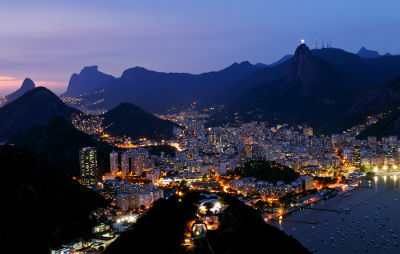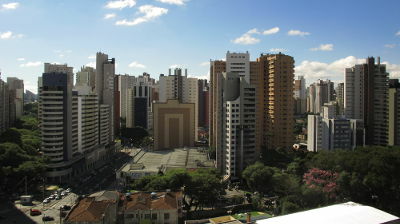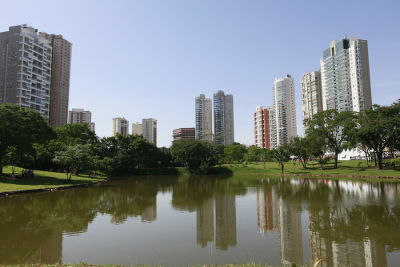Metropolis is a city of high urban development that organizes around itself a centrality responsible for establishing a network composed of cities dependent on it, making up a dense urban network, where the main activities, jobs and capital of a given region.
When the space of a metropolis is relevantly united with other cities (called satellite cities), it is observed the formation of a Metropolitan region. The phenomenon related to this union between the different urban spaces of metropolitan cities is called conurbation.
In Brazil, there are currently 36 institutionalized metropolitan regions, that is, with regulations provided for by law. Of these, the largest is in São Paulo, a region known as “Greater São Paulo”, with a population of approximately 20 million inhabitants, according to the 2010 Demographic Census. Then there are the regions of Rio de Janeiro, Porto Alegre, Belo Horizonte and Recife. The table below shows the twelve main metropolitan regions in the country:
METROPOLITAN REGIONS |
POPULATION |
São Paulo |
19.672.582 |
Rio de Janeiro |
11.711.233 |
Belo Horizonte |
5.413.627 |
Porto Alegre |
3.960.068 |
Recife |
3.688.428 |
strength |
3.610.379 |
savior |
3.574.804 |
Curitiba |
3.168.980 |
Campinas |
2.798.477 |
Manaus |
2.210.825 |
Goiania |
2.173.006 |
Bethlehem |
2.040.843 |
Main metropolitan regions in Brazil
In terms of hierarchy, metropolises are organized at various levels, from regional to global, classification that depends on the complexity of the connections and the network with which the city in question is related. Furthermore, the level of technological and industrial development is also a relevant factor for this issue.
At global metropolises they are those cities that exert a well-defined influence over the cities of the national territory and the international zones. Some of them are able to connect economically and socially to the entire world, as is the case with New York. In Brazil, there are two global cities: São Paulo and Rio de Janeiro. Besides polarize throughout the national territory, they influence activities in a large part of Latin America, in some regions of Asia and also in some parts of Africa.

Rio de Janeiro: global metropolis
At national metropolis, as the name implies, are those that do not usually extrapolate commercially and economically their relations beyond the territory of their countries. Even so, they are considered cities of high social and political importance, as they concentrate a good part of the capital, work and income that are produced nationally. In Brazil, the national cities are Porto Alegre, Belo Horizonte, Curitiba, Salvador, Recife, Fortaleza and Brasília.

Curitiba, national metropolis
At regional metropolises – possibly called regional centers – are cities that polarize a region of considerable size in the country, becoming an economic reference at the local level. In many cases, it is these cities that mediate the flow of transport and capital between medium and small cities with the main national urban centers. In Brazil, there are four examples: Manaus, Goiânia, Belém and Campinas.

Goiania, regional metropolis
By Me. Rodolfo Alves Pena
Source: Brazil School - https://brasilescola.uol.com.br/o-que-e/geografia/o-que-e-metropole.htm

